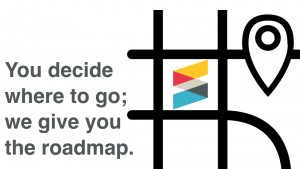TL;DR: We will proceed with implementing the proposed support for registering content before online availability. Adopting the workflow will be optional and will involve no extra fees.
What happens to a research work outside of the formal literature? That’s what Event Data will aim to answer when the service launches later this year. Following the successful DOI Event Tracker pilot in Spring 2014, development has been underway to build our new service, newly re-named Crossref Event Data.
We’re reviving the Books Interest Group, and inviting new members! After a hiatus, Crossref’s Books Interest Group is back. We’re excited to announce that Emily Ayubi of the American Psychological Association has agreed to chair the group.
Crossref is proposing a process to support the registration of content—including DOIs and other metadata—prior to that content being made available, or published, online. We’ve drafted a paper providing background on the reasons we want to support this and highlighting the use cases.
We will shortly be adding a new feature to Crossmark. In a section called “Clinical Trials” we will be using new metadata fields to link together all of the publications we know about that reference a particular clinical trial. Most medical journals make clinical trial registration a prerequisite for publication.

In the 2015 Crossref Annual Meeting, I introduced a metaphor for the work that we do at Crossref. I re-present it here for broader discussion as this narrative continues to play a guiding role in the development of products and services this year.
Today eight publishers have presented an open letter that sets out the rationale for making ORCID iDs a requirement for all corresponding authors, a move that is being backed by even more publishers and researchers as the news spreads on twitter with #publishORCID.
We’ve been talking a lot about infrastructure here at Crossref, and how the metadata we gather and organize is the foundation for so many services - those we provide directly - and those services that use our APIs to access that metadata, such as Kudos and CHORUS, which in turn provide
Forty wire telephone switchboard, 1907, Author unknown, Popular Science Monthly Vol 70, Wikimedia Commons. A few months ago Crossref announced that we will be launching a new service for the community in 2016 that tracks activities around DOIs recording user content interactions.
If you’re anything like us at Crossref Labs (and we know some of you are) you would have been very excited about the launch of the Raspberry Pi Zero a couple of days ago. In case you missed it, this is a new edition of the tiny low-priced Raspberry Pi computer.
You might have missed it, but you haven’t missed out. If you want to watch – or savor re-watching – the presentations from last week’s 2015 Crossref Annual Meeting, we’ve embedded each video below in chronological order.